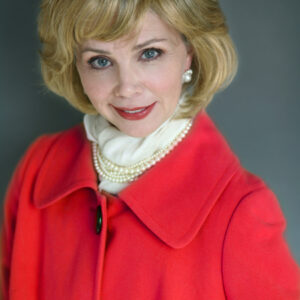
In 7th grade I couldn’t speak. Well, in my social studies class, that is. I can still remember raising my hand to answer a question posed by the teacher. My mouth was moving but no sound came out.
If you’ve ever had a dream in which you’re trying to scream or run away from the monsters but your voice is constricted or your legs won’t work—that’s what it felt like for me.
The “monsters” in this case turned out to be my classmates. I had accidentally been placed in the wrong level class. My classmates were loud and rowdy. Having come from the most idyllic elementary school setting, I felt intimidated and completely out of place.
My mom talked to the counselor and got me in the right class pretty quickly, but that 7th grade experience left an indelible mark. Ironically, I would go on to make a career out of speaking, but even all these years later, I have a keen understanding of what it feels like to want to speak but to be rendered silent.
What is it about the voice that is so powerful but also so scary? Poet David Whyte describes it this way: “The very act of speech is courageous because no matter what we say, we are revealed.”
Of course, the act of courageous speech has been even harder for women.
Since it’s women’s history month, I wanted to celebrate a couple of the women I’ve dramatized over the past twenty years who have taught me something about courageous speech.
From Gidget and the Flying Nun to Norma Rae and Mary Todd Lincoln, surprisingly, Sally Field knows all to well what it’s like NOT to be able to speak.
As a little girl, Sally was sexually molested by her stepfather. Out of fear and because she was simply too young to know what to do, Sally felt she couldn’t tell anyone, including her mother. In her moving and brutally honest memoir, In Pieces, she describes being with her stepfather and in her head screaming, “Mom, mom, help me! Where are you?” But she never actually uttered a word.
Last month, Sally received a lifetime achievement award from the Screen Actors Guild. In her acceptance speech she credited acting for giving her the courage to speak up, personally and professionally.
She found that playing Norma Rae—the heroic unionizer of a southern textile mill—was pivotal in helping her find her authentic voice.
As the character Norma Rae struggled to stand up and gain respect, Sally saw herself growing in her ability to stand up for herself and her work. As Norma’s sense of dignity emerged, Sally stood taller. As Norma unleashed her rage, Sally felt freed. When Norma found her voice, Sally heard hers.
No doubt, Sally’s willingness to open up in her book about her most traumatic experiences has helped others find hope, inspiration, and the courage to speak their truth.
(You can catch me doing Sally Field at the Niles Library on April 6 at 10:30 AM.)
I’m also reminded of another inspiring woman who helped change the world for female journalists—the one and only Barbara Walters who died this past December 30, 2022. “Baba Wawa” is also part of my repertoire, and with her passing, there has been a renewed interest in my dramatic book review of her memoir, Audition.
First off, Walters hated Gilda Radner’s “Baba Wawa” portrayal of her on Saturday Night Live. Walters, like so many women, had to work twice as hard and deal with a lot of sexism. Her co-host at ABC, Harry Reasoner, hated her and let her know it. Was it simply because she was a woman and the first female to be paid a million dollars for doing the nighttime news?
But Walters was a genius at interviewing—think Fidel Castro and Barbra Streisand—and the powers that be recognized it. Walters fought the battles and paved the way for future female journalists. She broke that glass ceiling and did it her way, in spite of what she was up against as a woman in a male-dominated industry.
By the way, during her 50 years on tv, she interviewed every President and First Lady from Nixon to Obama.
Sadly, she never got to interview the first female president. But, hey, WE can dream, can’t we?
(You can catch me doing Barbara Walters at Sun City Huntley on May 10.)
In my public speaking trainings and one-on-one coaching, one of the questions I often get from participants is “How can I find my authentic voice?”
I think being authentic is being yourself, but with purpose. In other words, it takes a willingness to fail, to sound like a mouse at times in order to roar like a lioness later.
But here’s a place to start.
Draw on your superpower. Make a list of what makes you qualified. Write down what’s compelling about you.
You might be surprised at what already lies within.
I am grateful to all the courageous women who have come before and for those who continue to change the world and are a voice for women and for all people everywhere.
A true talented Jenny Riddle, presented at Luther Oaks today! She was a tremendously , exciting personality in acting, vocal , appearance and personal presentation! A great gift to al! Thank you is too small , but is giving in sincere appreciation.! Thank you!
I hope to have an advantage to experience Jenny Riddle often!